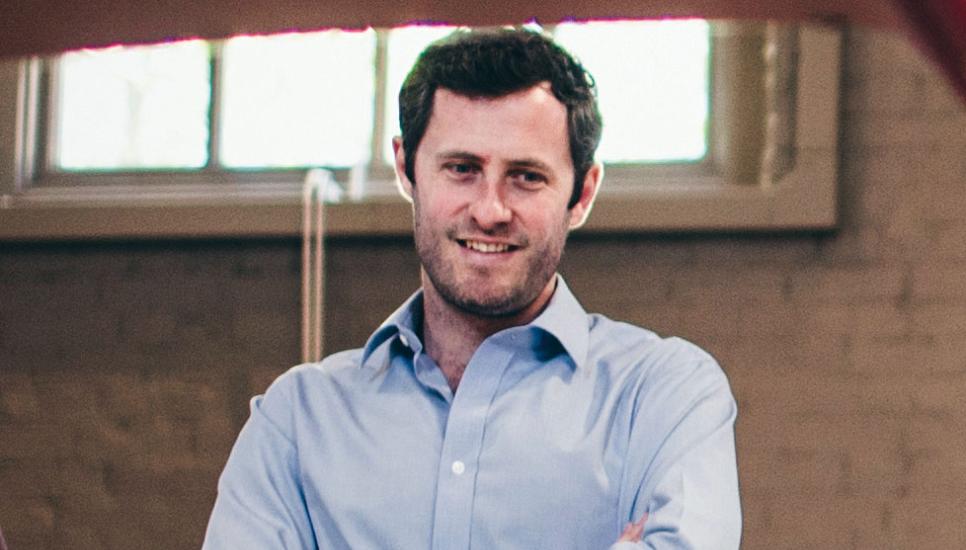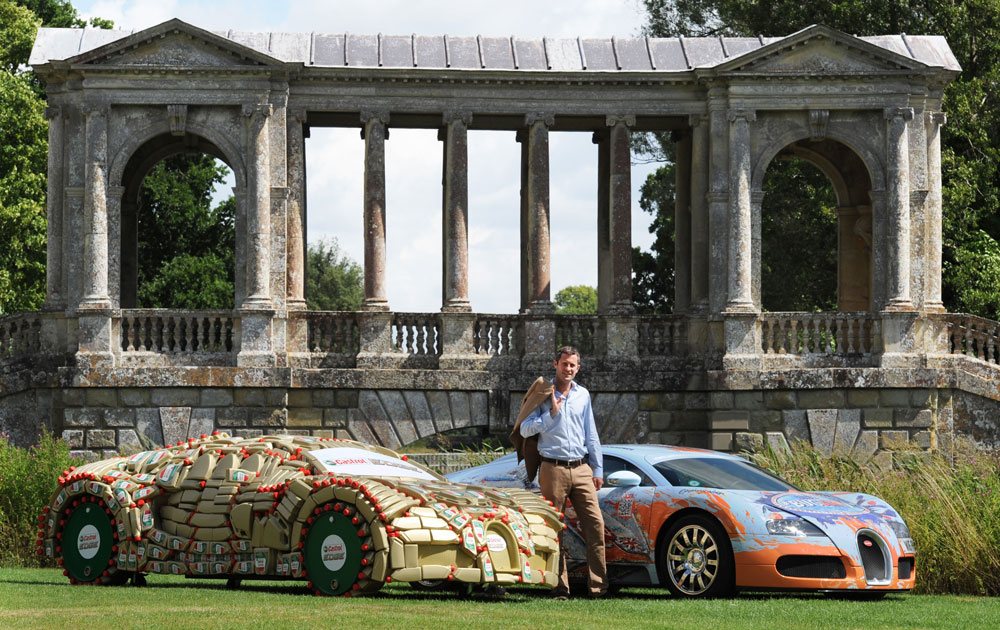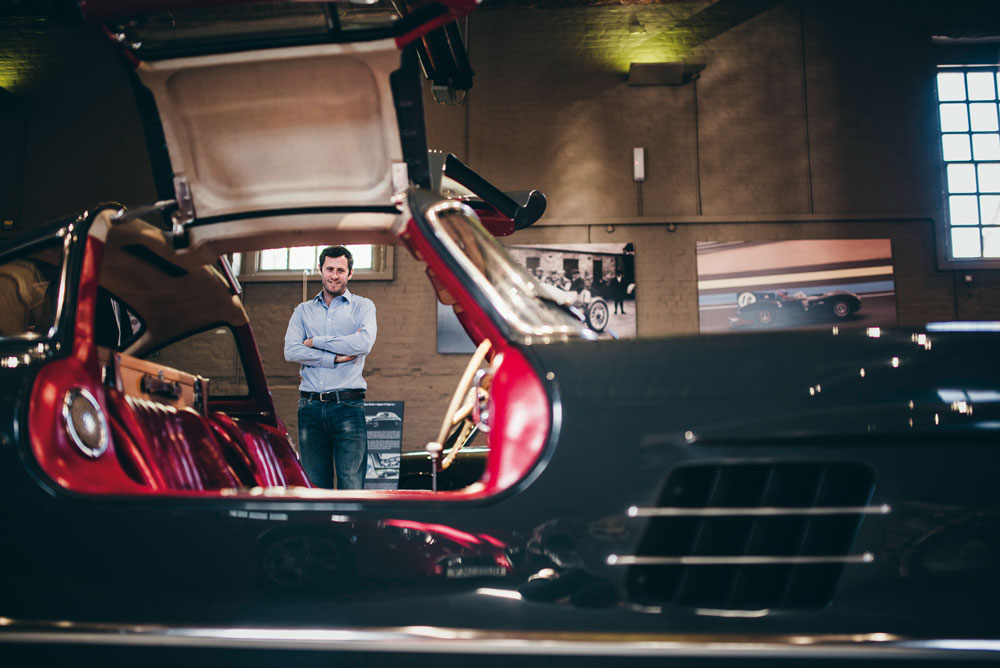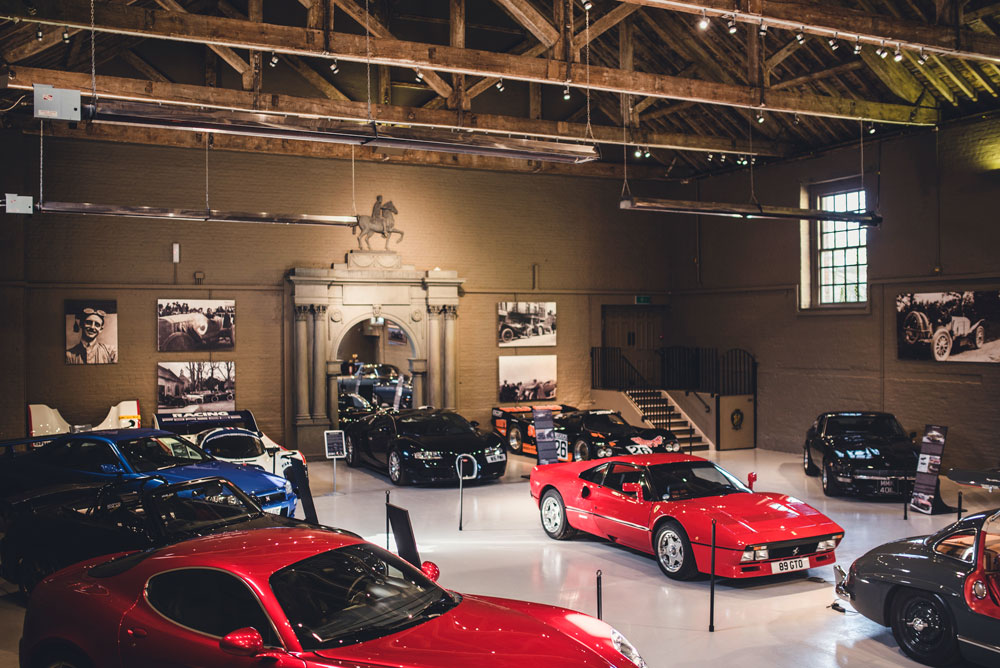To the motor born: Lord Pembroke on managing your classic car investment

William Herbert, the 18th Earl of Pembroke, may have his family’s Palladian mansion Wilton House decorated with van Dycks and Rembrandts, but the collection closest to heart is parked in his converted coach house. Lord Pembroke shares with James Beech his practical insights on owning and running classic cars as passion investments.
Lord Pembroke inherited his love of motor cars from his great-grandfather, Arthur Wignall Tate, the grandson of Sir Henry, the sugar merchant and philanthropic founder of the Tate gallery.
Arthur is pictured in a blown up photograph from the archive behind the wheel of an Edwardian Grand Prix Mercedes-Benz, on the wall in the coach house on the grounds of Lord Pembroke’s stately 16th century Wilton House near Salisbury, England.
The 18th and current Earl of Pembroke has collected dream machines in that same coach house for personal pleasure and public display. Among the classic cars and supercars he owns are a Ferrari 288 GTO, a gullwing Mercedes-Benz 300 SL, and a Bugatti Veyron.
Why should family leaders invest their time, energy and money into classic cars over other passion investments, such as art or antiques?
Firstly I believe they should not invest in cars unless it is a passion of theirs.
 Cars have made phenomenal (tax free) gains over the last 20 years, less so recently, but there are still gems out there, as well as an endlessly renewing list of more modern classics.
Cars have made phenomenal (tax free) gains over the last 20 years, less so recently, but there are still gems out there, as well as an endlessly renewing list of more modern classics.
The age of cars seems much less relevant these days with some cars only a few years old outperforming classics. However, it’s a more volatile market.
Assuming you are diversifying only a modest proportion of a mixed portfolio into a passion investment such as cars, the great thing as with most passion investments, is that no matter the value the enjoyment of the asset is still the same and, more often than not with cars, the less they are worth the more you can enjoy them.
The tax exemption of cars is obviously one of the biggest bonuses when looking at cars as investments, but don’t forget the upkeep and maintenance is much greater than say it might otherwise be with antiques or artwork. However, this amount when looking at the possible gains that have been made on the higher-end cars sold is negligible when considering what the gains could be if taxed.
What are your do’s and don’ts when investing in classic cars?
Always go for the very best example of the car you are seeking to invest in and always get a specialist to inspect and write up a report on the car. If you can’t stretch to the best, look for the very best of something else.

Are there any marques which are especially sound investments, as in hold or increase their value?
Ferrari. There are two particularly exciting cars to keep an eye on currently. One is the Ferrari 550 or 575, which have both slumped by some 40% over the last year or so. However, if you consider you can acquire a manual V12, 200mph Ferrari for around £80,000, there is only one way these are going to go. The other is the incredibly rare and beautiful Alfa Romeo 8C Competizione, very much a modern classic that is currently increasing in value about 20% a year, if you can find one. Most are squirrelled away in collections now.
 What is your advice for managing a classic car collection to preserve its value?
What is your advice for managing a classic car collection to preserve its value?
Cars like to be driven, enjoy them, after all that is their purpose. Using cars also gives them patina, and a story which can add to their value.
What should happen to the collection once the passion investor has died?
The cars should be passed on or sold so others can enjoy them.






